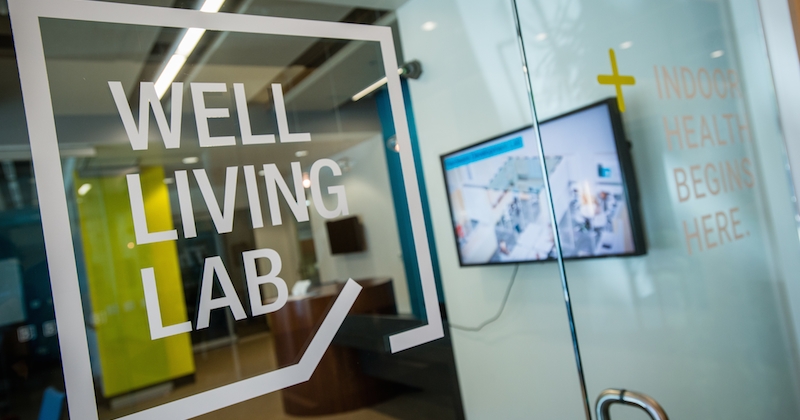
Well Living Lab will undertake a three-year scientific research plan to identify how indoor environments affect five facets of people’s lives.
How indoor environments affect five significant facets of people’s lives—health, performance, stress and resiliency, sleep, and comfort—will be the focus of an extensive three-year scientific research plan conducted by the Well Living Lab. Studies will examine the five factors for homes, workplaces, and independent living communities. A critical component of the research is the interplay of elements such as sound, lighting, temperature, and air quality, all of which can be altered in various combinations to uncover positive, neutral, and negative effects on people.

“Our responsibility is to advance the science by conducting human-centered research that can be used in practical ways,” said Brent Bauer, M.D., medical director of the Well Living Lab and director of medicine for Mayo Clinic’s Complementary and Integrative Medicine Program. “It’s our belief that favorable outcomes can be realized, which will have long term benefits for people’s lives.”
A variety of experiments will be reviewed, approved, and monitored by the Institutional Review Board of Mayo Clinic. Questions to be explored include:
- How office workers respond to artificial lighting that simulates natural light, not just at work, but also how it may change their ability to get sufficient sleep at home.
- How changes in environmental conditions affect sleep and stress.
- What types interventions can increase cognitive performance and improve job satisfaction.
The research will further build on the results of the Well Living Lab’s latest study findings, published in Building and Environment. The study found that temperature, noise, and lighting in open office environments affect employees’ ability to get work done. This was a proof-of concept study that demonstrated the strength of living lab methodology in measuring realistic occupant responses to select environmental changes in an open office. Specifically, it indicated that employees are most sensitive to thermal conditions, followed by work-related noise such as conversations and lack of natural light from windows when working in open office environments. These factors affected work environment satisfaction, productivity, and even carried over into the mood of employees and their sleep.
The study consisted of eight working age participants who spent 18 weeks in a simulated work environment in which acoustics, lighting, and temperature were manipulated in numerous combinations, and the findings were based on occupant responses to surveys and in-depth interviews.
“We want to understand the effect of environmental conditions and combinations of conditions to improve health and well-being, including performance, comfort, stress and resilience, and sleep,” said Dr. Bauer. “This study is just the beginning. We will continue to explore the relationship of environmental factors in the workplace and at home.”
The direction for this scientific exploration was solidified by Mayo Clinic and Delos, as well as the lab’s scientific advisory board with members from academia and governmental institutions including Brigham and Women’s Hospital; Carnegie Mellon University; National Institute of Diabetes, Digestive & Kidney Diseases; Stanford University; University of California; UC Berkley; US General Services Administration and University Medical Center Groningen in the Netherlands.
“We know that passive design elements in our homes, offices, and buildings can contribute to our health and well-being,” said Peter Scialla, COO of Delos and co-chair of the Well Living Lab’s Joint Steering Committee. “This research will further advance change for the building industry and result in innovative design, products, materials, and technologies.”
facilityexecutive.com


Leave a Reply